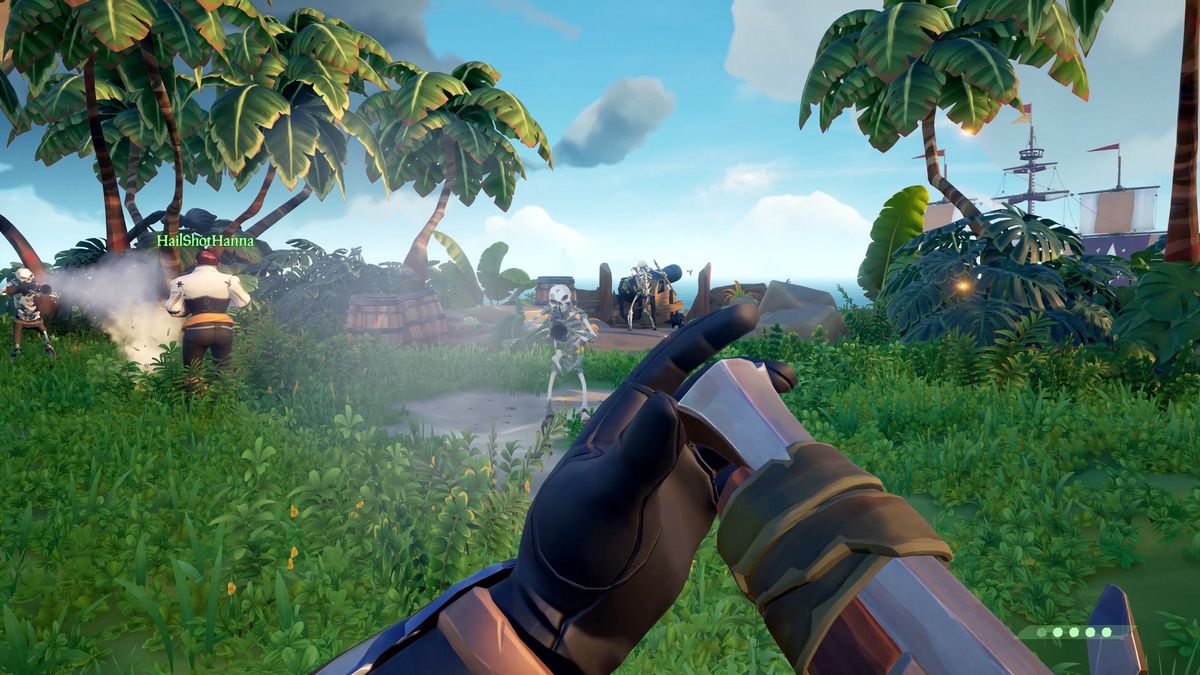How Sea of Thieves rekindled a lost love of multiplayer games
Sea of Thieves brings back something that's been missing from recent multiplayer games.


Microsoft's ambitious pirate-themed cooperative game, Sea of Thieves, recently received a week-long closed beta on Xbox One and Windows 10. Following its unveiling three years ago, the testing period opened the game to its largest audience yet, ahead of a slated launch on March 20.
Over recent years I've found myself less-invested in multiplayer games, following a push for online across almost every big-budget release. With multiplayer quickly becoming a standard for games, I've always felt something has been lost in this transition. However, Sea of Thieves appears to approach online gameplay from a unique angle, and it proposes a concept that leaves me eager for launch.
The true value of teamwork

Multiplayer is a major pillar of Sea of Thieves, with mechanics built around its cooperative adventures with up to three friends. While exploring, you encounter features tailored to this philosophy, often requiring multiple roles to be filled by a group.
Few games spark a sense of team accomplishment quite like Sea of Thieves.
One of the best examples is the ship mechanics, which require a team effort simply to keep moving. Getting from point to point rewards strong cooperation, through the management of steering, sails, navigation, combat and various other tasks. Maintaining a consistent team dynamic is key, especially during its tensest moments.
Few games spark a sense of team accomplishment quite like Sea of Thieves, even with the beta's limited content. It's rare to see games tie together these traits so well, especially outside of the shooter genre.
Don't stop exploring

Sea of Thieves is strengthed by the changing nature of its open world, with online integration that actually affects gameplay. While similar successes such as Destiny and Tom Clancy's The Division tout their huge shared environments, this serves as a backdrop rather than translating to meaningful gameplay. In these cases, encountering players often presents a sense of a dynamic world, rather than actually creating one.
It's the journey, not the destination, that makes Sea of Thieves so captivating.
While Sea of Thieves beta content consisted entirely of fetch quests, often perceived as a bad trait in games, how they're approached makes them compelling. With an impressive sandbox packed with small activities and secrets, the game provides incentives to keep playing outside of the main objectives. It might sound cheesy but it's the journey, not the destination, that makes Sea of Thieves so captivating.
Get the Windows Central Newsletter
All the latest news, reviews, and guides for Windows and Xbox diehards.
And that's rare in games nowadays – it's becoming increasingly common to leave players grinding the same experiences to earn new rewards. Sea of Thieves rewards you for testing the scope of its sandbox, in turn valuing the experience over the reward. Rather than following set objectives and checkpoints, you form your own story.

I feel more credit should also be given to Sea of Thieves' implementation of voice chat, which although minor, has a huge effect on gameplay. The game actively recommends teams communicate through its own voice chat, which promotes teamwork at a surface level. This also ties into its proximity chat feature, meaning enemies can hear one another when nearby.
The implementation stands out against similar shared-world titles. Its presence led to some memorable encounters during my sessions, where crews were shouting at one another between ships. It brought me back to an era where in-game voice chat was commonplace, and it added yet another layer to Sea of Thieves.

Sea of Thieves is a little over a month away, yet more details on content are expected ahead of launch. From what was available during the beta, a question lays over the game's content, especially with a $60 price tag. Provided the game can serve enough content to keep players with fresh adventures, the game has some promising traction going into launch.
What were your experiences with the Sea of Thieves beta? Make sure to drop into the comments and share your pirate adventures.
Matt Brown was formerly a Windows Central's Senior Editor, Xbox & PC, at Future. Following over seven years of professional consumer technology and gaming coverage, he’s focused on the world of Microsoft's gaming efforts. You can follow him on Twitter @mattjbrown.
